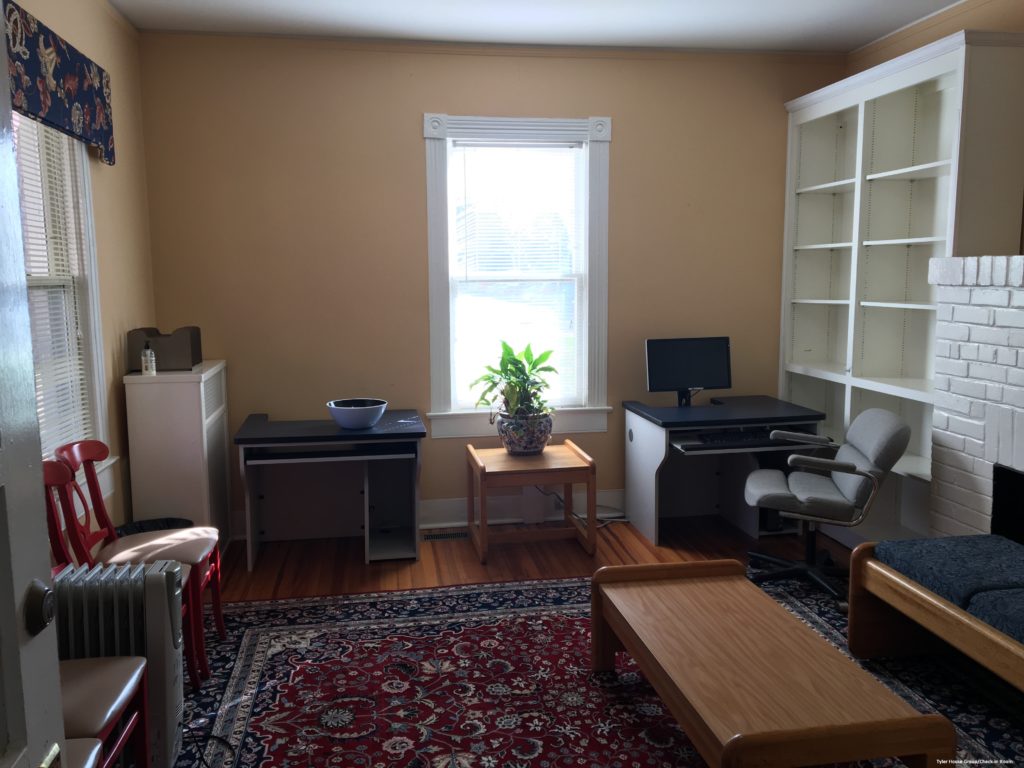Talley Center offers 24/7 emergency support for students through ProtoCall
3 min read
The Talley Center is located in Lee Hall room 106 and the Tyler House on College Ave. | umw.edu
MARGARET JACKSON
Staff Writer
As of Sept. 12, the Talley Center for Counseling Services now offers 24-hour counseling services. While students can still receive care from the Talley Center during their business hours, ProtoCall, a 24-hour behavioral health services center, is available when the Talley Center is closed. This initiative aims to provide the campus community with mental health resources at all hours and minimize the role of the UMW Police in responding to mental health crises.
“All of us at the Talley Center are incredibly grateful to President Paino and the Division of Student Affairs for recognizing this need for increased mental health support for our students,” said Dr. Tevya Zukor, director of the Talley Center.
By calling the 24-hour ProtoCall line, a student will receive assessment and be connected to the Talley Center during business hours should they need additional services.
“Knowing that students are able to receive mental health support and crisis intervention by trained clinicians at all hours, helps the staff sleep better at night and remain focused on supporting students during the day,” said Zukor. “The change in the Talley Center’s hours and services provided is a prime example of the University of Mary Washington putting students and their wellbeing first.”
Students have expressed support for the expansion of mental health care access and believe that the Talley Center having more hours will provide a greater sense of comfort.
“I think it’s good, something terrible could happen in the middle of the night, by the morning they might change their mind about seeking help,” said junior philosophy major Faith Newbold.
This decision was made after a survey was conducted by the UMW Police Community Advisory Board, commissioned by University President Troy Paino to review police activity and crisis response on campus. Formerly, the University Police would respond to after-hours mental health calls. The Community Advisory Board’s final report, completed and delivered to Paino in March 2021, found that “reforming the University’s mental health crisis response protocols is needed to require that mental health clinicians are (i) available to students 24/7 and (ii) are the primary responders in a mental health crisis, while using Campus Police in a supporting role.”
Zukor’s hope is that wider access to support and licensed physicians will lower the chances that crisis situations will escalate.
“Now that students are able to access crisis support in the middle of the night and on weekends, the number of times police need to respond or the frequency in which a student needs to be evaluated at a hospital are likely to be significantly reduced,” said Zukor. “Which will have a positive impact on ALL students, faculty and staff involved in crisis situations. The more that a situation can be contained and de-escalated before becoming critical benefits everyone.”
Some students believe that increased accessibility to counseling services will allow students to utilize the Talley Center as a greater resource.
“I think the increased accessibility will benefit student[s] in that it allows students to lean on the Talley Center for emotional support,” said junior marketing major Melea Lineberry.
Zukor noted that having 24-hour mental health services available benefits not just students, but staff, friends and family members as well.
“This increase in mental health support coverage for our students should not be taken lightly and will have a significant positive impact on students,” he said. “When a student is in distress, the impact is rarely isolated to just the immediate student. Instead, it is also the friends, family and support-providers of the identified student who are usually impacted.”


